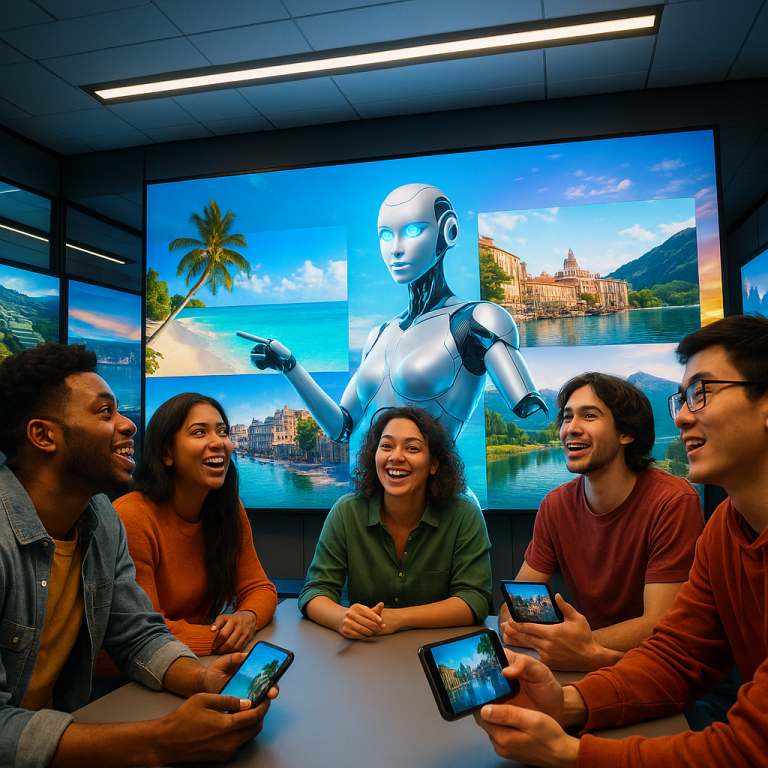AI Influencers in Travel Industry: Revolutionizing Travel for Small Business Owners
The travel industry has entered a new era, accordingly driven by the influence of social media platforms such as TikTok. At the heart of this transformation is the emergence of AI influencers in the travel industry and the integration of commerce into social media, altering how travel experiences are marketed and purchased. For small business owners in the travel and hospitality sectors, understanding these trends is crucial to staying competitive in a rapidly evolving market.
The Power of Social Media Influence
From Inspiration to Action
During the Preferred Hotels Global Conference held in Singapore, industry experts discussed the shift in the travel booking process due to social media, particularly TikTok. Unlike traditional search methods, today’s consumers prefer making swift, visually-driven purchasing decisions directly on these platforms. This is true especially for Generation Z, who interact with digital content in innovative ways, often bypassing conventional travel agencies.
Content Creators Turned Entrepreneurs
Influencers like Ali Almeshaal have evolved into entrepreneurs, launching their travel agencies to cater to their digital audiences. This shift underscores a new marketing model where AI influencers in the travel industry wield considerable power, offering personalized travel experiences directly to their followers, which they trust and value.
AI and Virtual Influencers
The Role of AI
AI’s role in the travel industry is expanding, and virtual influencers such as Singapore’s Rae exemplify this transformation. These AI-driven personalities offer consistent engagement and have become key players in promoting travel destinations, facilitating direct bookings, and driving sales, without the unpredictability associated with human influencers.
The Benefits of Virtual Influencers
Virtual influencers provide a unique advantage: they can maintain consistent messaging and availability, making them reliable partners in both promotional and customer engagement strategies. Their technological appeal resonates with a tech-savvy audience, highlighting a fusion of technology and tourism.
The Rise of Video Content
Video as the Primary Engagement Medium
Eason Zhang from TikTok emphasized the growing dominance of video as a medium for travel-related engagement. TikTok has transcended its role as a social media platform and evolved into a travel marketplace, offering end-to-end solutions from inspiration to purchase through features like TikTok Shop and trending hashtags such as #TravelTok.
Engaging a Broader Audience
Contrary to popular belief, TikTok’s largest user demographic now spans ages 25–34, demonstrating the platform’s ability to reach a broad and diverse audience. Small business owners can leverage this by tailoring authentic and relatable video content that speaks directly to varied consumer segments.
Strategies for Small Business Owners
Practical Advice
To harness these trends effectively, small business owners should focus on creating content that is genuine and engaging, unlike polished but insincere advertisements. Starting with broad content and refining strategies based on audience response can significantly enhance social media marketing efforts.
Resources
For those interested in exploring further, here are some valuable resources:
- Social Commerce Is Transforming Travel – Brands Need to Move Fast, Robin Gilbert-Jones, published May 5, 2025.
- AI travel influencers are here. Human travelers hate it., Natalie B. Compton, published November 14, 2024.
- How TikTok changed the way Gen-Z travels, Meera Navlakha, published February 6, 2024.
By understanding the impact of AI influencers in the travel industry and social media commerce, small business owners can better navigate this landscape. Thus ensuring they remain relevant and capable of meeting the evolving expectations of modern travelers.










